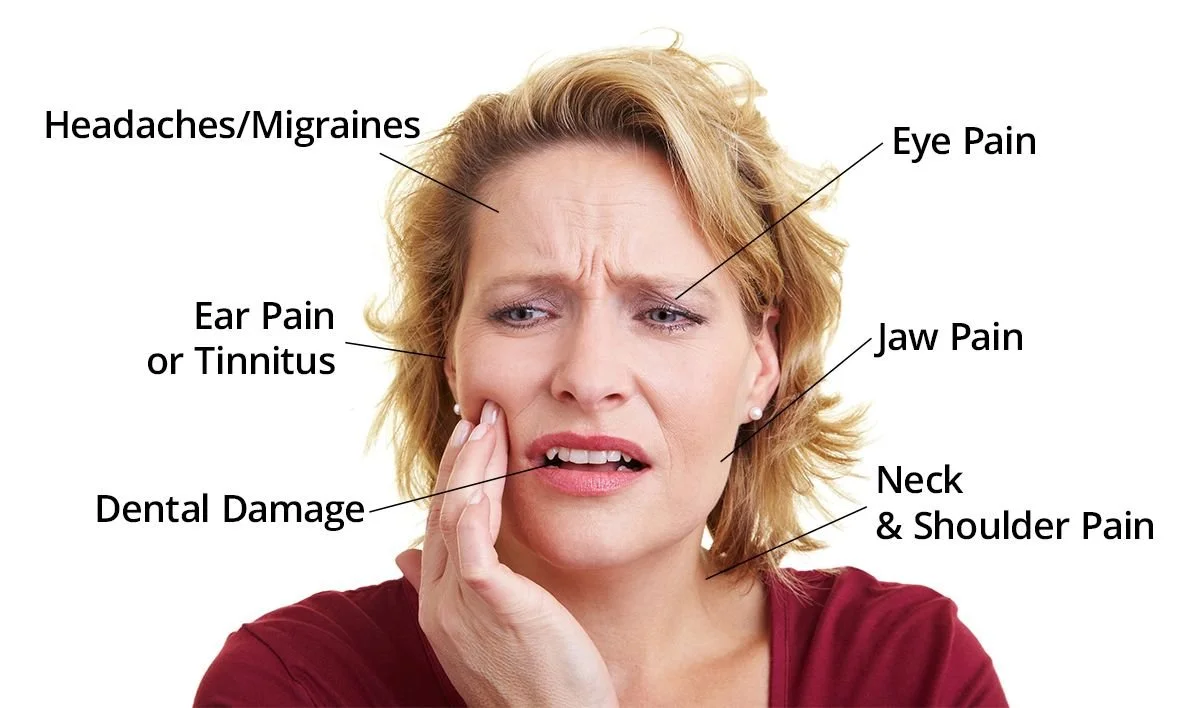TMJ Disorder Treatment at Dee Why Dental: Relieve Jaw Pain and Restore Comfort
If you’re experiencing pain or discomfort in your jaw, frequent headaches, or difficulty chewing, you may be suffering from TMJ Disorder. At Dee Why Dental, we offer comprehensive care for TMJ (temporomandibular joint) disorder, helping you find relief from jaw pain and restore normal function. Our team provides personalised treatments tailored to your specific symptoms, so you can enjoy a pain-free life.
What is TMJ Disorder?
TMJ Disorder refers to issues affecting the temporomandibular joints, which connect your jaw to your skull on either side of your head. These joints allow you to open and close your mouth, chew, and speak. When the TMJ isn’t functioning properly, it can cause a range of symptoms that affect your daily life, such as pain, difficulty chewing, and clicking or popping sounds when opening or closing your mouth.
Symptoms of TMJ Disorder
TMJ Disorder can present a variety of symptoms, which may vary in severity depending on the individual. Common symptoms include:
Jaw pain or tenderness
Clicking, popping, or grating sounds when opening or closing the mouth
Difficulty chewing or discomfort while chewing
Locking of the jaw, making it difficult to open or close your mouth
Headaches or migraines
Pain in the neck, shoulders, or ears
Swelling on one or both sides of the face
If you’re experiencing any of these symptoms, it’s important to schedule a consultation at Dee Why Dental to determine the cause and discuss treatment options.
Causes of TMJ Disorder
Several factors contribute to TMJ Disorder, including:
Jaw Injuries: Trauma can damage the joint, leading to dysfunction.
Teeth Grinding (Bruxism): Grinding or clenching can strain the TMJ, causing pain.
Arthritis: Conditions like osteoarthritis can affect the joint.
Jaw Misalignment: An uneven bite can put pressure on the TMJ.
Stress: Tension in the jaw muscles can lead to TMJ discomfort.
How is TMJ Disorder Diagnosed?
At Dee Why Dental, we’ll conduct a thorough exam, assessing your jaw’s movement and using X-rays or digital imaging to check for structural issues.
Treatment Options for TMJ Disorder at Dee Why Dental
Our treatment approach for TMJ Disorder focuses on relieving pain, restoring function, and preventing future discomfort. Depending on the severity of your symptoms and the underlying cause, we may recommend one or more of the following treatments:
Occlusal Splints (Mouthguards): Custom-made mouthguards, also known as occlusal splints, are designed to reduce the strain on your jaw by preventing teeth grinding and clenching. These are typically worn at night to alleviate pressure on the TMJ while you sleep.
Physical Therapy: Certain jaw exercises and stretches can help strengthen the jaw muscles, improve range of motion, and reduce pain. We may recommend physical therapy as part of your treatment plan to alleviate TMJ discomfort.
Medications: Anti-inflammatory medications, muscle relaxants, or pain relievers may be prescribed to reduce inflammation, ease muscle tension, and manage pain associated with TMJ Disorder.
Stress Management: Since stress can exacerbate TMJ symptoms, learning relaxation techniques, such as meditation or deep breathing, can help reduce muscle tension in the jaw.
Orthodontic Treatment: In cases where TMJ Disorder is caused by misalignment of the teeth or jaw, orthodontic treatments like Invisalign or braces may be recommended to correct the issue and alleviate strain on the TMJ.
Surgical Treatment: In rare cases where conservative treatments do not provide relief, surgery may be considered to correct structural issues within the joint. This is typically reserved for severe cases and is only recommended after thorough evaluation.
Lifestyle Tips for Managing TMJ Disorder
In addition to professional treatment, there are several steps you can take at home to manage your TMJ symptoms and prevent future discomfort:
Avoid Hard or Chewy Foods: Stick to soft foods that are easy to chew, and avoid gum, chewy candies, and tough meats that can put strain on your jaw.
Practice Jaw Relaxation Techniques: Gentle jaw stretches and relaxation exercises can help reduce tension and improve flexibility in the jaw.
Apply Heat or Cold Packs: Alternating heat and cold packs can help relieve pain and reduce inflammation in the TMJ.
Maintain Good Posture: Poor posture, especially when sitting for long periods, can contribute to jaw and neck tension. Be mindful of your posture and take breaks to stretch your neck and shoulders.
When to Seek Professional Help for TMJ Disorder
If you’re experiencing persistent jaw pain, difficulty chewing, or headaches related to your TMJ, it’s important to seek professional care. Left untreated, TMJ Disorder can worsen and lead to more severe symptoms, including chronic pain and limited jaw movement.
Ready to Find Relief from TMJ Disorder?
Struggling with TMJ Disorder and looking for effective relief? Contact Dee Why Dental today to schedule a consultation. Our team will work with you to diagnose the issue and develop a personalised treatment plan to help you feel better and restore comfort to your daily life.



